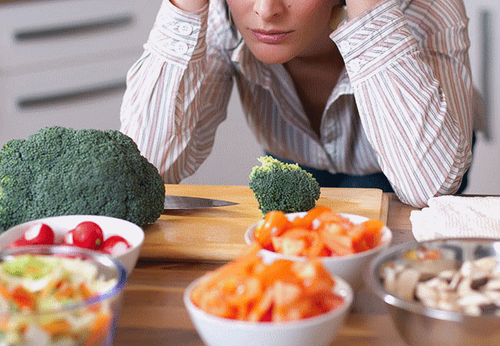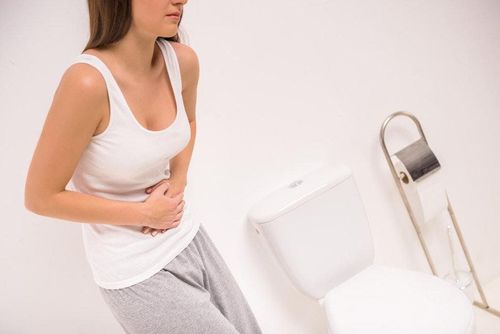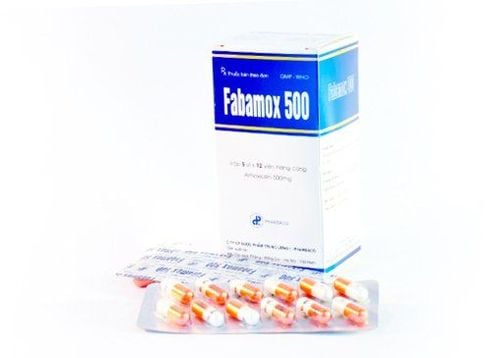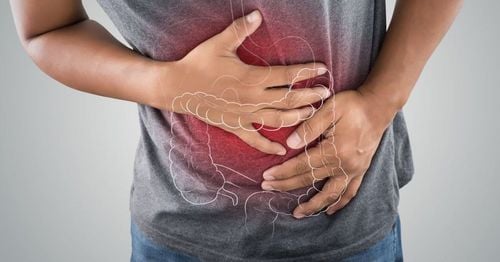This is an automatically translated article.
Posted by Master, Doctor Mai Vien Phuong - Department of Examination & Internal Medicine - Vinmec Central Park International General Hospital
Feces often have an unpleasant odor. In many cases, foul-smelling stools are caused by the food the patient has eaten and the bacteria present in the large intestine. However, foul-smelling stools can also indicate a possible serious health problem such as diarrhea, bloating or gas with foul-smelling stools. This stool is usually soft or watery.
1. What causes bad-smelling stools?
Dietary changes are a common cause of foul-smelling stools. Other causes include:
Malabsorption Malabsorption is a common cause of foul-smelling stools.
Malabsorption occurs when the body cannot absorb nutrients from food. This usually happens when an infection or disease prevents the intestines from absorbing nutrients.
Common causes of malabsorption:
Gluten intolerance – the body's reaction to gluten leads to destruction of the lining of the small intestine and prevents nutrient absorption. Inflammatory bowel disease (inflammatory bowel disease) such as Crohn's disease or ulcerative colitis. Carbohydrate intolerance – the intestines have reduced or lost their ability to absorb sugars and starches. Milk protein intolerance Food allergy People with inflammatory bowel disease often complain that they have very foul-smelling diarrhea or are often constipated. People with inflammatory bowel disease may also experience bloating after eating certain foods. Bloating may be accompanied by an unpleasant odor.
Infections Infections affecting the intestines can also cause foul-smelling stools. Inflammation of the stomach and intestines, which can occur after eating food contaminated with:
Bacteria, such as E. coli or Salmonella Viruses Parasites Immediately after developing an infection, you can get sick stomach cramps and then passing foul-smelling, watery stools.
Medicines and supplements Some medications can cause gastrointestinal upset and lead to diarrhea.
Taking some over-the-counter multivitamins can also cause foul-smelling stools if you are allergic to the ingredients of the supplement.
After a course of antibiotics, you may pass foul-smelling stools until your normal flora is restored.
Bad-smelling diarrhea can be a side effect of taking more than the recommended daily multivitamin or any single vitamin or mineral.
Diarrhea when taking multivitamins or taking more medication than recommended is a sign of a medical emergency. Getting too much of any of these vitamins can cause life-threatening side effects:
Vitamin A Vitamin D Vitamin E Vitamin K Other conditions Other conditions can cause foul-smelling stools includes:
Chronic pancreatitis Cystic fibrosis Short bowel syndrome
2. Symptoms
Possible symptoms of foul-smelling stools include:
Watery stools or diarrhea Soft stools Frequent urination Stomach pain Nausea Vomiting Bloating Stomach bloating Bad-smelling stools could be a sign of a problem serious medical condition. See a doctor immediately if you develop any of the following symptoms:
Blood in stools Black stools Pale stools Fever Abdominal pain Unintentional weight loss Chills
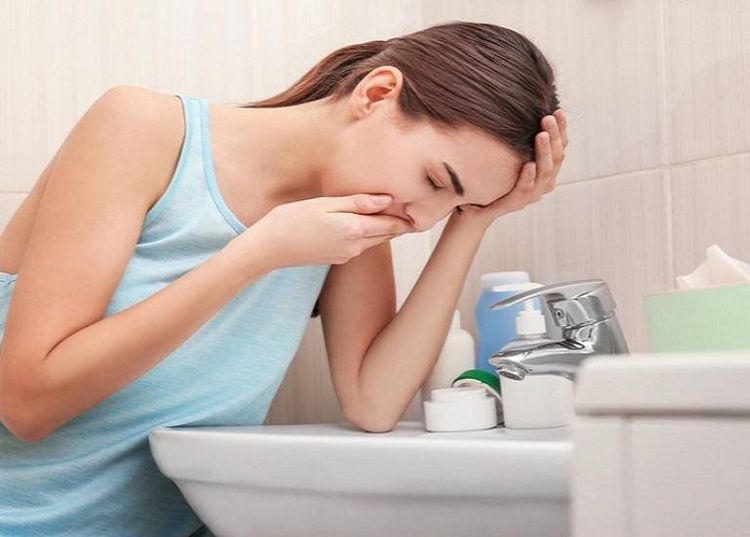
3. How to diagnose foul-smelling stools?
During your appointment, your doctor will ask you about your stools, including how thick they are and when you first noticed the odor.
If stool consistency has recently changed, your doctor will want to know when the change occurred. Tell your doctor about any recent changes you've made to your diet.
Your doctor may order a stool sample to check for bacterial, viral, or parasitic infections. They may also order a blood sample for testing.
4. How to treat a foul-smelling bowel movement?
Treatment will depend on the cause. Diseases such as Crohn's may require a long-term change in diet or adherence to medication that controls bowel movements and relieves pain.
Cases of mild infections, after going out a few times, can be controlled and cured.
5. Prevention
Here are some ways to help prevent bad-smelling stools:
Diet changes Changing your diet can help prevent foul-smelling stools. For example, avoid drinking raw or unpasteurized milk.
If you have a disease that affects the way you absorb food or the way your body responds to eating certain foods, your doctor can create a diet plan that is right for you.
Following this diet plan can help reduce symptoms such as:
Abdominal pain Stomach bloating Bad-smelling stools For example, for inflammatory bowel disease, you can follow the low FODMAP diet.
Proper food handling Avoid microbial contamination from your food by handling it properly. Cook raw food thoroughly before eating. Examples include:
Beef Poultry Pork Eggs Thoroughly cooking means checking the internal temperature of your food with a thermometer before eating it.
Consult your doctor for the minimum internal temperature that each food must reach before you eat it.
Do not prepare both meat and vegetables on the same cutting board. Preparing them on the same board can spread Salmonella or other bacteria.
You should also wash your hands thoroughly after handling raw meat or using the restroom.
Please dial HOTLINE for more information or register for an appointment HERE. Download MyVinmec app to make appointments faster and to manage your bookings easily.





